Penn State University Participants
Carly Holzwarth
PhD Art Education
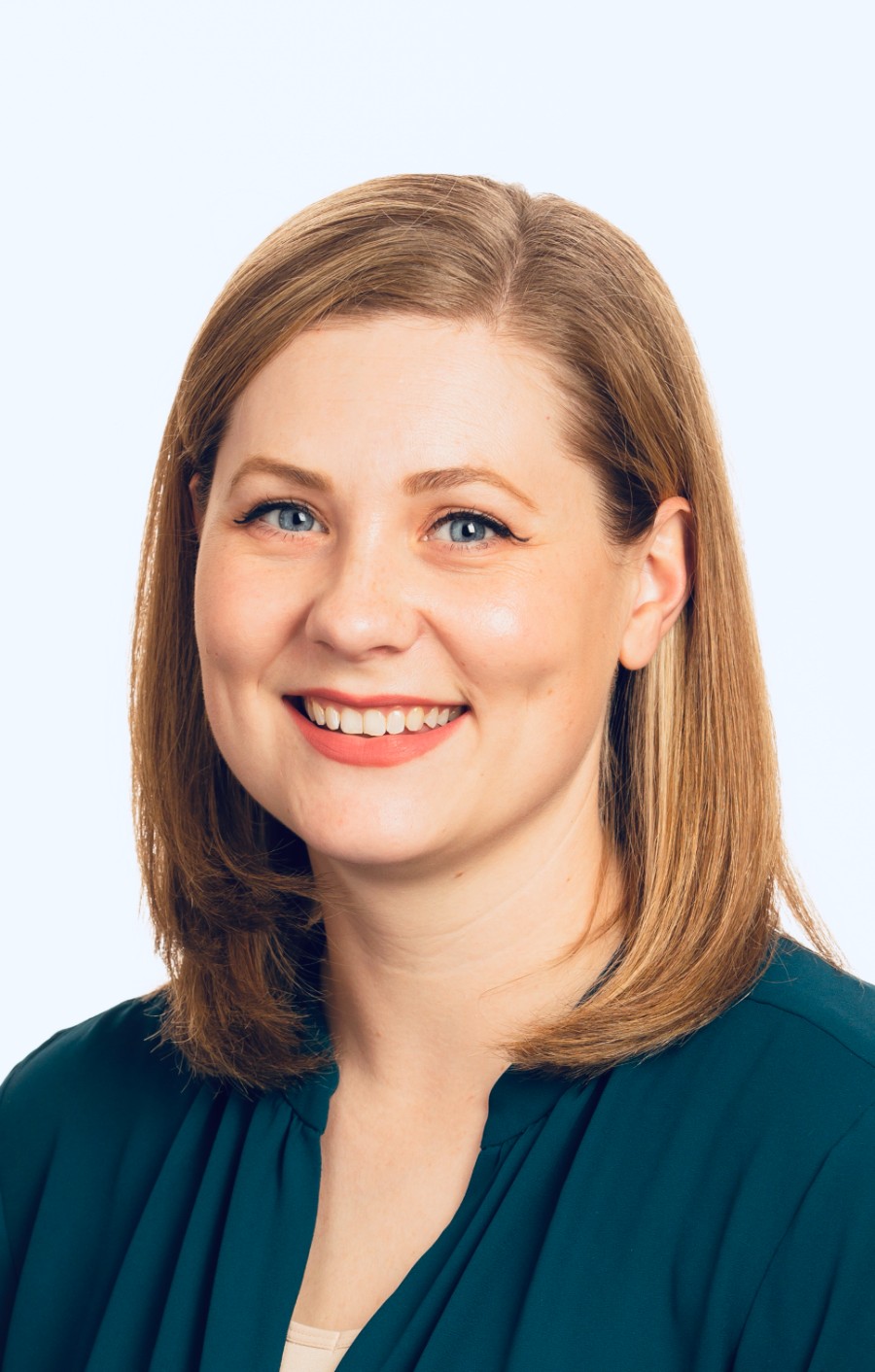
Bio: Carly Holzwarth (she/her) is a costume designer, arts educator, Assistant Professor of Costume Design and History, and C. Graydon and Mary E. Rogers Faculty Fellow at Bucknell University. She holds an MFA in Costume Design and is currently a Ph.D. candidate in Art Education at The Pennsylvania State University. Her research is focused on ethical costume pedagogies and teacher/student collaboration. Carly is also a certified student success specialist and coach with expertise in working with non-traditional students to build skills in resilience while navigating higher education. She is passionate about supporting student designers and scholars participating in the field of costume design and production and dismantling potential barriers barring such participation. Her work as a costume designer has been seen across the US and abroad, including but not limited to: The National Black Theatre, Edinburgh Theatre Festival, The John F. Kennedy Centre, and The Adelaide Fringe Festival.
Title of Dissertation: A Fitting Room Pedagogy: How Collaboration is Felt
Abstract: The fitting room resides in the middle of the costume design process---an apt place for something that holds transitions, becomings, and things in progress. The performance of the fitting is a rehearsal of sorts as characters are enfleshed through bodies, materials, touch, and movement. This enfleshing, this in-process becoming of character within the boundaries of the fitting room, is also occurring to those outside the character within the space. This collaboration of touch sticks to teachers and students in their art-making. This research asks, ‘How is collaboration felt?’ by dwelling in an anomalous art classroom, the fitting room, and investigating its pedagogy of intimacy and care. Through body mapping workshops with costume educators and performer students and autobiographical performative writing during costume fittings across an academic year, I attend to the complexity of collaboration between artist-teachers and students as entangled relations of bodies, both human and not, and atmospheres in the fitting room. The prosthetic relationship between theatre and art education is also underscored in this research, which considers, ‘What can art education learn from contiguous sites in arts education such as theatre?’
Advisor: Kimberly Powell, PhD: Professor of Education, Art Education, Music Education, & Asian Studies, Director of Graduate Studies, Dept. of Curriculum & Instruction, College of Education; Penn State
Fouz Aljameel
Dual-title Ph.D. Candidate in Art Education and Women's, Gender, and Sexuality Studies
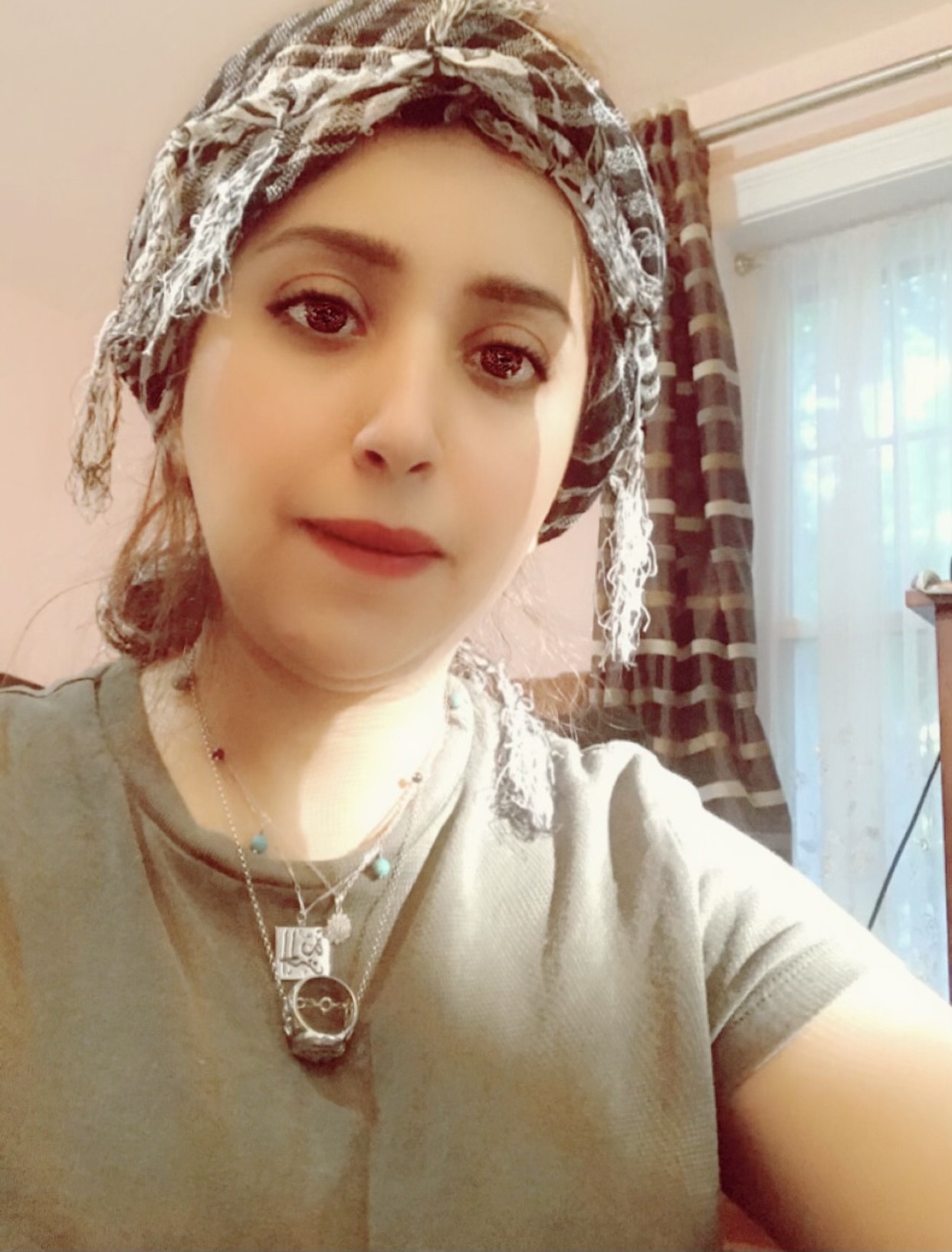
Bio: Fouz Aljameel (she/her) is a Ph.D. candidate in the dual-title program in Art Education and Women's, Gender, and Sexuality Studies. She is also a Graduate Research Assistant at Penn State's Center for Pedagogy in Arts and Design. Her research focuses on digital art activism, feminist art, and the intersection of art, technology, and culture. Fouz is dedicated to documenting and preserving the digital expressions of feminist movements, particularly within the context of Saudi Arabia. She aims to bridge gaps in scholarly research by exploring the impact of cyberfeminism on social change. Her work contributes to feminist digital scholarship and offers methodological insights into capturing and analyzing digital activism.
Title of Dissertation: Saudi Cyberfeminist Visual Index (SCVI): Indexing the Saudi Cyberfeminist Movement
Abstract: Integrating feminist digital indexing with Saudi feminist ethics, the study addresses access, safety, and the storage of ephemeral data in my creation of the Saudi Cyberfeminist Visual Index (SCVI), an open-source, web-based platform that serves as an interactive and searchable digital index documenting the Saudi Cyberfeminist Movement (SCM) from 2011 to 2021, and its aftermath. The SCVI is an index of social media posts, blog entries, images, and videos, all of which have been gathered by me since the beginning of the Arab uprisings, preserving the movement's narratives, strategies, and achievements, while also functioning as a pedagogical resource that deepens the understanding of feminist movements. Data collection methods include automated web scraping and manual curation, enriched by interviews with key Saudi activists to provide personal testimonies. The analysis employs sentiment and social network analysis to uncover underlying motivations and narratives. The SCVI is designed to serve as a historical record and a dynamic living index resource for scholars, artists, and activists, preserving the contributions of Saudi cyberfeminists and enhancing global understanding of digital feminist activism. The study contributes to feminist digital scholarship by highlighting the intersection of gender, technology, and culture in Saudi Arabia.
Advisor: Dr. Karen Keifer-Boyd, Professor of Art Education and Women's, Gender, and Sexuality Studies
Glynnis Reed-Conway
Dual-Title Ph.D. in Art Education & Women’s, Gender, and Sexuality Studies
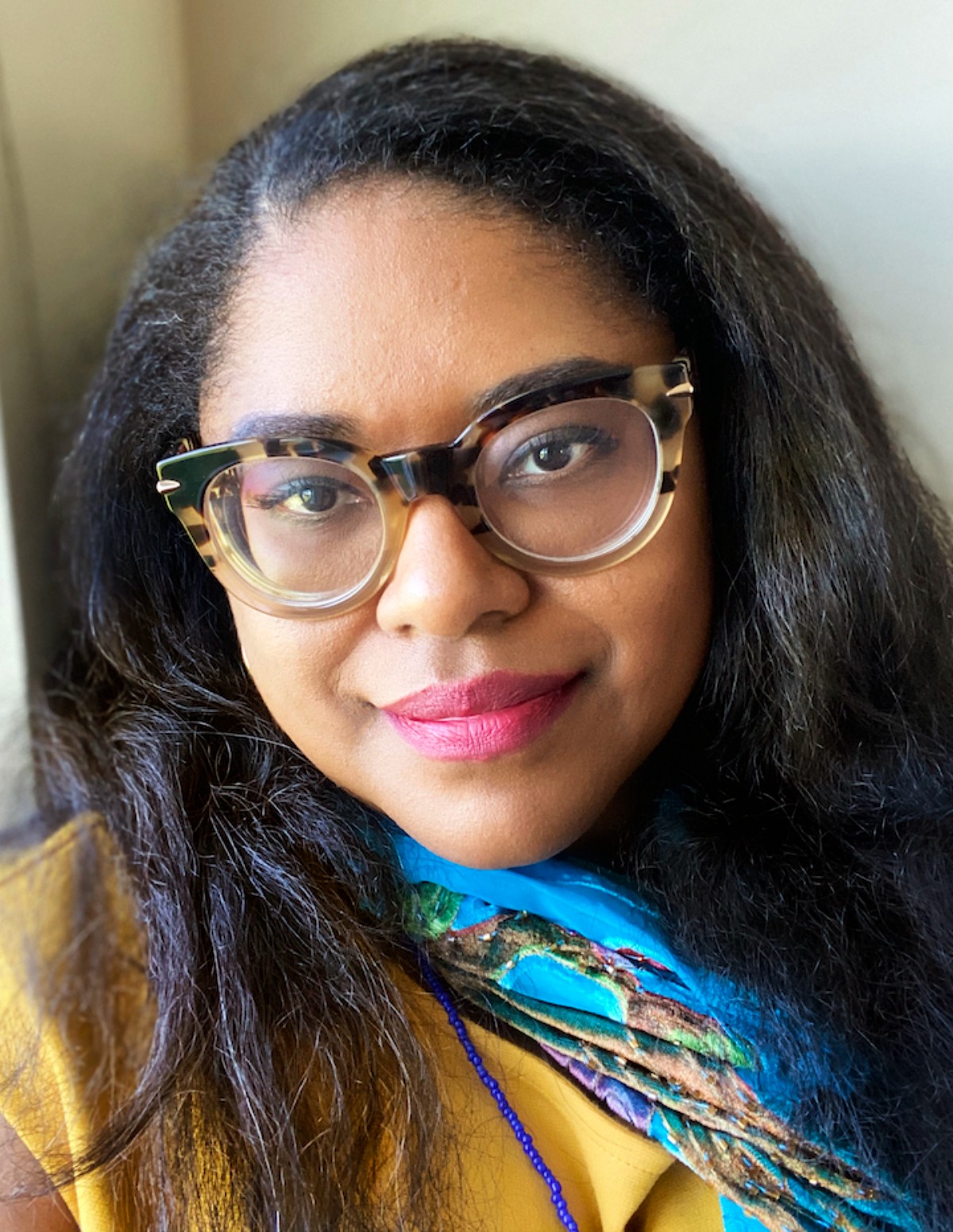
Bio: Glynnis Reed-Conway is motivated by art’s capacity to build worlds and act as a healing and liberating force. Her artistic and scholarly activities weave together artmaking and creative writing practices, Black feminism, autoethnography, and Africana religious studies to bring greater awareness of the value of the lives and contributions of intersectionally marginalized individuals of African descent to the field of art. An accomplished professional visual artist, Reed-Conway has exhibited her artwork widely in the U.S. and internationally. She is currently a dual-title Ph.D. candidate in Art Education and Women’s, Gender, and Sexuality Studies at The Pennsylvania State University. She has more than two decades of experience as an art educator in the roles of teaching artist, K-12 art teacher, museum educator, and university instructor. She is a co-editor and contributor to the edited collection, BIPOC Alliances: Building Communities and Curricula and author of the book, James Baldwin: Novelist and Critic.
Title of Dissertation: An Arts-based Critical Autoethnography of Healing and Self-recovery through Conjure Feminist Worlding and Wayfinding
Abstract: Wayfinding and worlding toward healing and self-recovery through artmaking and writing, after sexual trauma in 1995, is the focus of my dissertation. Wayfinding is an approach to uncovering previously subordinated knowledges to learn from the past so that we may survive and begin to thrive. Worlding happens in my interiority and daydreaming, a safe space amid difficult memories. To better understand the qualities and characteristics of my healing and self-recovery, I analyzed my pre- and post-trauma artworks, sketches, and writings created as early as 1993. Conjure feminism, a Black feminist theory, guides my analysis of the connection of Black women's epistemologies to African derived practices of spirituality, religion, the supernatural, and community. I examine my personal relationship to Africana religions through concepts of sacred embodiment and sacred subjectivity. I approach wayfinding and worlding as pathways to survival, healing, and self-recovery after trauma for myself and others who are similarly situated.
Advisor: Dr. Karen Keifer-Boyd, Professor of Art Education & Women’s, Gender, and Sexuality Studies
Ohio State University Participants
Alice Yu-Chin Cheng
PhD in Arts Administration, Education and Policy with a focus on Art Education
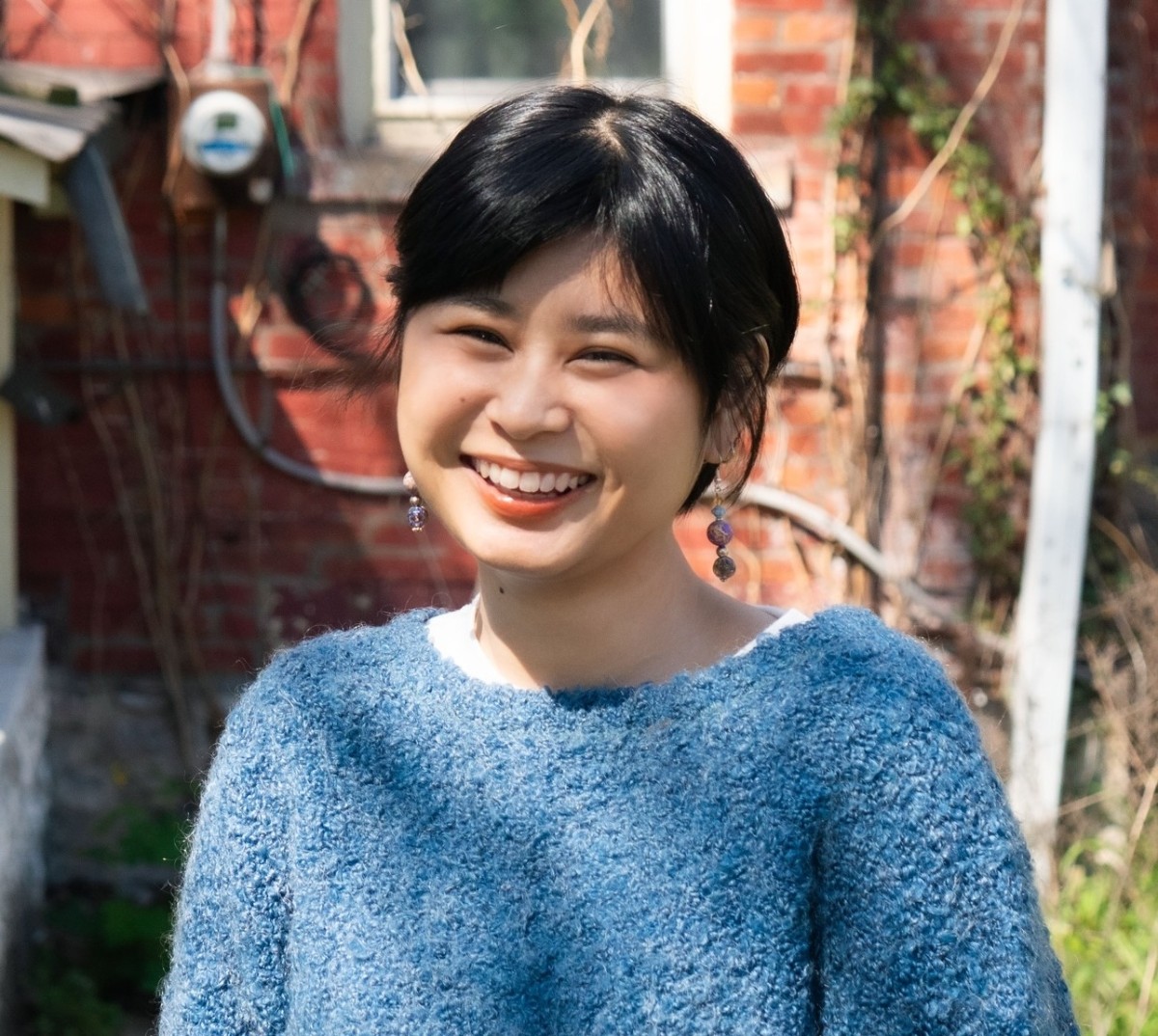
Bio: Alice Yu-Chin Cheng is a Ph.D. candidate in the Arts Administration, Education, and Policy program at Ohio State University. With a background in teaching in nontraditional classroom settings in both privileged and underserved communities in Taiwan, Alice is interested in how the arts can be a space for critical dialogue. Alice’s current research investigates how Higher Education educators engage in visual culture in to teach about racial, ethnicity, gender, and sexuality diversity.
Title of Dissertation: Critical Witnessing: A Case Study of Teaching Diversity with Visual Culture in Higher Education
Abstract: In a time when anything could be deemed divisive, how do we persevere and continue to teach for transformation with visual culture? "Identifying Critical Witnessing in the Art Education Classroom: A Curricular Exploration of the Current State of Teaching Race, Ethnicity, Gender, and Diversity with Visual Culture in General Education Courses" is a case study that investigates how instructors at a predominantly White university engage in visual culture and the arts while teaching general education courses addressing race, ethnicity, and gender diversity. Through the analysis of syllabi, observations, and interviews the study aims to investigate classroom practices and curriculum planning strategies to advocate and connect with educators committed to transformative teaching. Specifically, the study will bridge theories of Critical Witnessing—encompassing relationality, centering marginalized voices, and non-linear learning—into practical application. Set during the university's recent shift from celebratory pluralism to a more reflexive and critical stance on systemic inequalities in the general education requirements, the study is contextualized in the current challenges and tensions of social-justice-oriented education.
Advisor: Dr. Joni Boyd Acuff
Amanda Tobin Ripley
PhD, Arts Administration, Education, & Policy
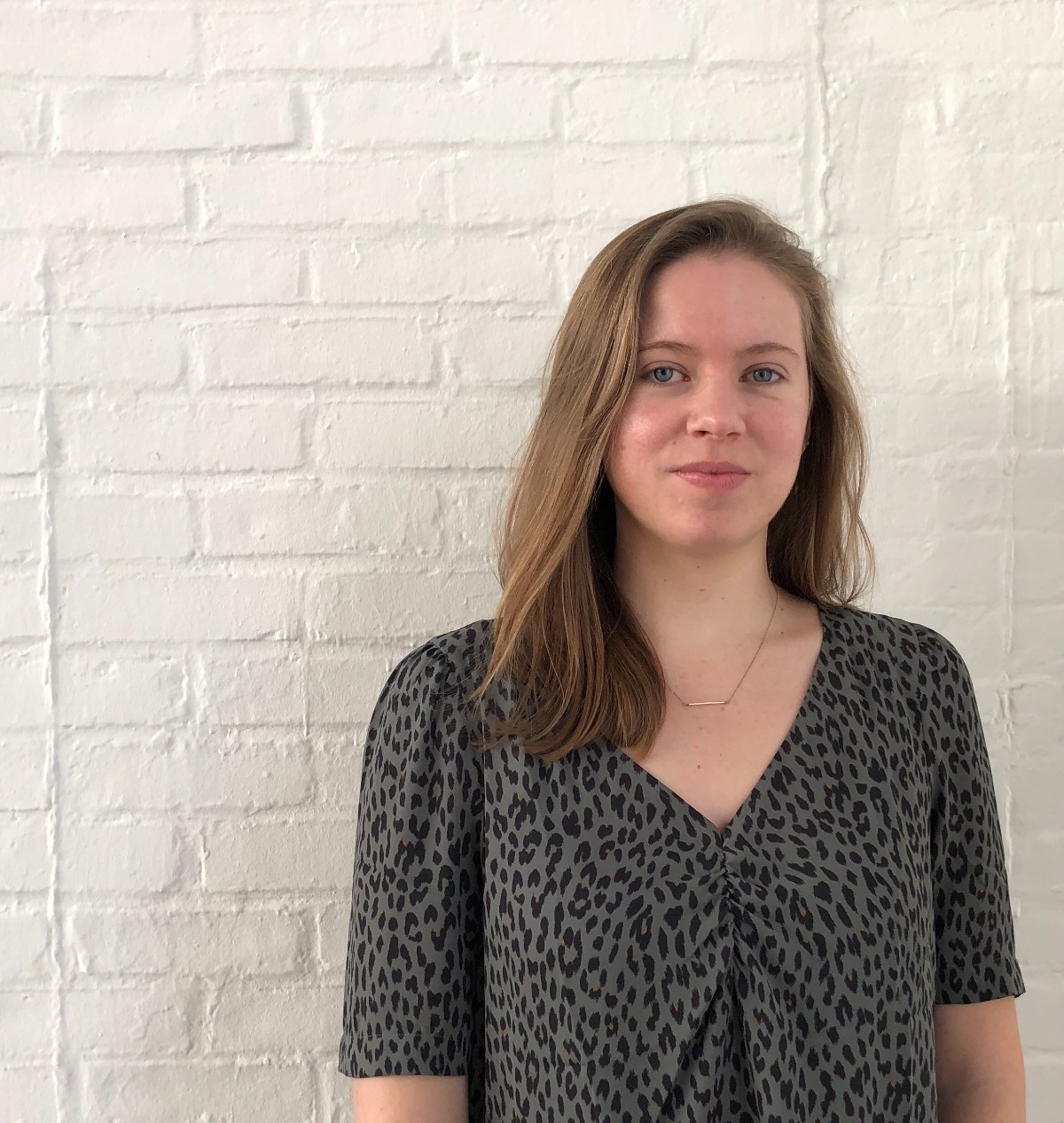
Bio: Amanda Tobin Ripley is a doctoral candidate in Arts Administration, Education, and Policy at The Ohio State University, where she specializes in Museum Education and Administration. Her research focuses on the intersections of the art museum labor movement and grassroots efforts towards social change. She worked with Museums Moving Forward to develop the Art Museum Unions Index. Amanda holds an M.Ed. from the Harvard Graduate School of Education in Arts in Education and a B.A. from Oberlin College in Art History and East Asian Studies. While working as the Associate Director of Education at MASS MoCA, she served on the organizing committee for the MASS MoCA Union (UAW Local 2110). She is currently based in Berlin.
Title of Dissertation: “Another World is Possible”: Liberatory Unionism in the U.S. Art Museum Labor Movement
Abstract: “Another World is Possible”: Liberatory Unionism in the Art Museum Labor Movement examines how contemporary art museum workers are advancing intersectional social justice through their labor organizing activities. Over three dozen U.S. art museums have established labor unions since 2019 alone, with new organizing drives and contract negotiations unfolding every day. This study examines the external and internal representations, discussions, debates, and manifestations of social justice unionism within this ongoing labor movement and its historical precedents. In recognition of the demographics of museum workers and histories of art museums, this study also implements a Critical Whiteness Studies lens to understand worker motivations and experiences. Using qualitative interviews, social media content analysis, archival research, contract analysis, and participant observation, this study demonstrates a paradigmatic shift in the purposes and structures of museum work. In turning to collective action, unionizing museum workers are forging cross-class solidarities within and beyond museum walls, thereby envisioning new possible futures for both museums and larger society.
Advisor: Dr. Dana Carlisle Kletchka, Associate Professor and Graduate Studies Chair
Polly Isurin
PhD in Arts Administration, Education, and Policy with a concentration in Art Education
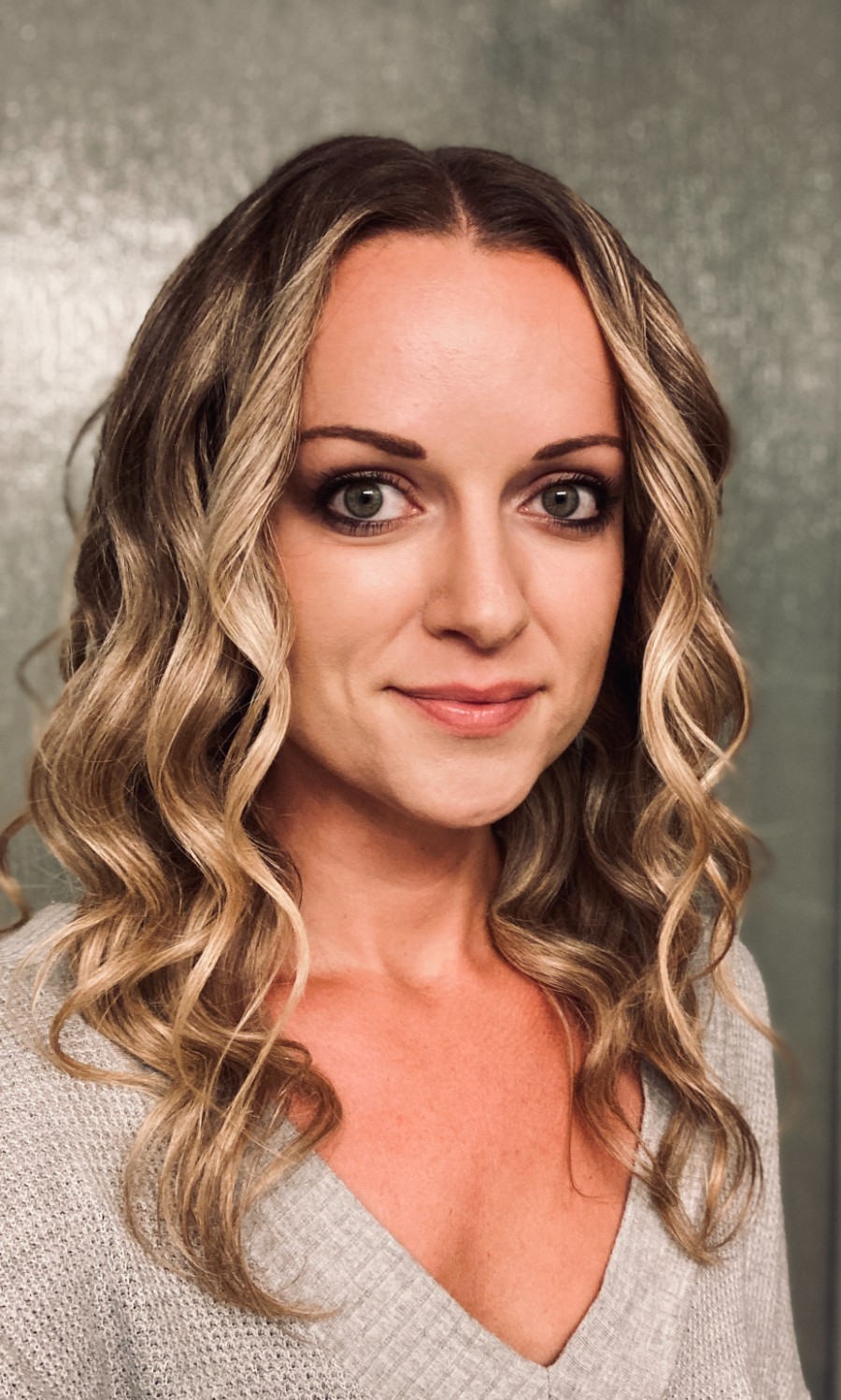
Bio: Polina Isurin is an artist and educator with experience in museums, schools, organizations, and universities. She received a BFA from The Ohio State University, and a MFA from Tufts University. Polina has taught visual art courses to middle, high school, and college level students. Teaching for over a decade without a formal education in teaching prompted her investigation into how her background, positionality, and creative practice prepared her for the role of artist-teacher. Within her interdisciplinary art practice, Polina is interested in the relationship between memory and in-between spaces. She uses memory engagement in a variety of ways to explore how her creative practice and teaching practice inform one another.
Title of Dissertation: Developing a Pedagogy of Memories through a Practice-Based Self-Study
Abstract: This dissertation involves a practice-based self-study about my teaching experience to inform understandings of artist-teacher preparation. The study examines the intricate and multilayered complexity of experience and positionality related to my preparation as an artist-teacher. As a White, bilingual, English speaking immigrant, and female artist-teacher, I am conscious that my assimilation is in reference to the accepted norm of this country, and undoing of assimilation and conformity requires a critical reflexive practice. Through the self-study, I retrace narratives about my teaching practice, critically examining how the memories are formed, triggered, and altered over time. As an installation artist, an emergent site-specific art installation is incorporated into the self-study to explore how a pedagogy of memories might develop, while also critically examining the materiality of what constitutes a site/sight/cite-specific art installation. As part of a feminist practice, my research promotes a practice that lives in-between the boundaries of art and life, art and education, art and research. This “in-between” can be seen as a place where memories transform, and knowledge emerges.
Advisor: jt Eisenhauer Richardson, Associate Professor
Teachers College Participants
Jennifer Ruth Hoyden
EdD in Art & Art Education
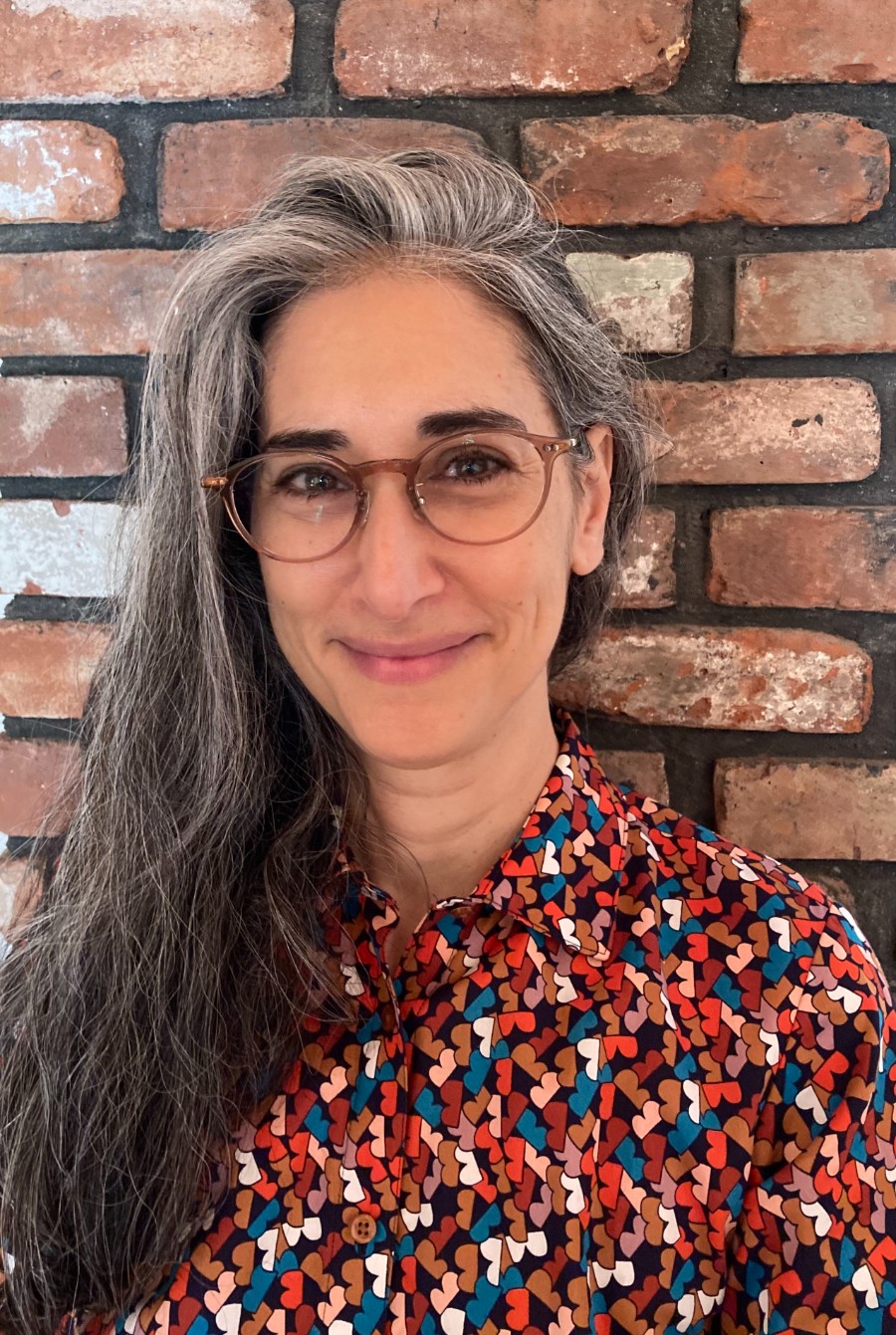
Bio: I am a doctoral candidate and Macy Fellow in the Art and Art Education Program at Teachers College, Columbia University, and an instructor at CUNY Queens College. My current research explores the structures of artistic practices that impact artists’ responses to material resistance, and the opportunities that the event offers. I am interested in ways that we can activate and be activated by the materials we work with to recognize new possibilities for artistic expression.
Title of Dissertation: The Nag of Materials: A Mixed-Methods Study on Moments of Material Resistance and Their Consequences for Fiber Artists
Abstract: In this study, I am collecting qualitative and quantitative data on the experience of material resistance for fiber artists to develop a hypothesis on how those moments of unexpected material behavior can become generative for some artists, and what might support their material responsiveness. Understanding material responsiveness as an approach to artmaking has implications for educators, working both within and outside of traditional classrooms, including online spaces. Material responsiveness, occurring in the social space between artist and material, might support artistic expression in unexpected ways. Using sequential mixed methods guided by grounded theory, I will explore how fiber artists describe their experience of a specific material behavior—material resistance—and what the consequences are for the artist and the work, by probing personal, detailed descriptions through an individual case study, followed by three interviews, before expanding to survey a larger purposive sampling. The successive findings will be integrated into a hypothesis on the phenomenon of material resistance for fiber artists, supported by an in-depth literature review.
Advisor: Dr. Judith Burton, Macy Professor of Education
Arzu Mistry
EdD in Art & Art Education
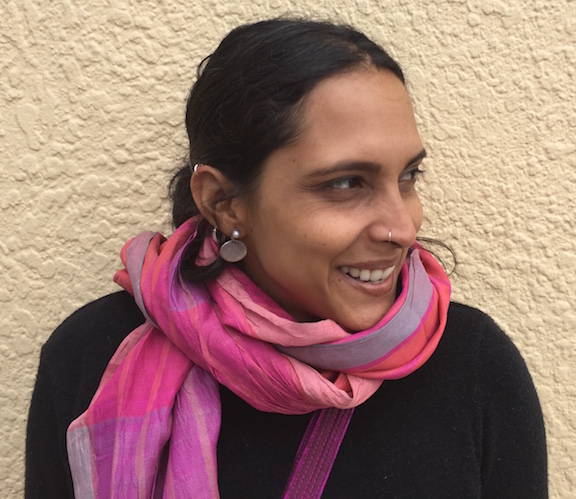
Bio: Arzu Mistry is an educator and artist. She maintains a high level of dedication and enthusiasm for art, craft, and design as mediums for pedagogy, advocacy, transformation, and intervention for the building of sustainable, inclusive communities. Arzu co-facilitates the Accordion Book Project and is the co-creator of the artist book Unfolding Practice: Reflections on Learning and Teaching. Arzu is the founder of the Art in Transit and placeARTS public art projects in the city of Bangalore, which focus on art as a medium for dialogue between people and the urban spaces they inhabit. Her art and education practice connects teachers, youth, and families with place through memory, story, play, and design practices, as well as interdisciplinary education, public community art facilitation, livelihoods training, teacher professional development, and educational research and practice. Arzu is a doctoral candidate at Teachers College, Columbia University, focusing on craft and cultural education.
Title of Dissertation: Aliveness in Craft Education in India
Abstract: India is known for its beautiful traditional crafts, such as exquisite textiles, meticulous woodwork, metalwork, and painted narratives, and these craft objects are exported worldwide as symbols of Indian culture. Over 200 million artisans contribute to the current Indian economy; however, these craftspeople are rarely viewed as contributors to the knowledge economy. Their craft practices, if taught in schools, are framed as part of history and heritage and are seen as of the past and not the present. Indian craft education at the school level and its links to the lived craft practices of craftspeople today remain under-studied.
In this study, I seek to understand how the lived practice of traditional artisans in India today influences and frames craft-integrated education. How do traditional artisans keep their craft practices alive and nurture the practice in the next generation? What factors allow their traditional practices to sustain and evolve, and how, if at all, can this aliveness in craft be drawn upon to frame the contemporary teaching of traditional craft practices in Indian schools? The study highlights the central phenomenon of aliveness in crafts practice and positions the research to explore the multiple dimensions of aliveness in lived craft practices today.
Advisor: Dr. Olga Hubard, Associate Professor, Art and Art Education
Kelly Cave
EdDCT in Art & Art Education
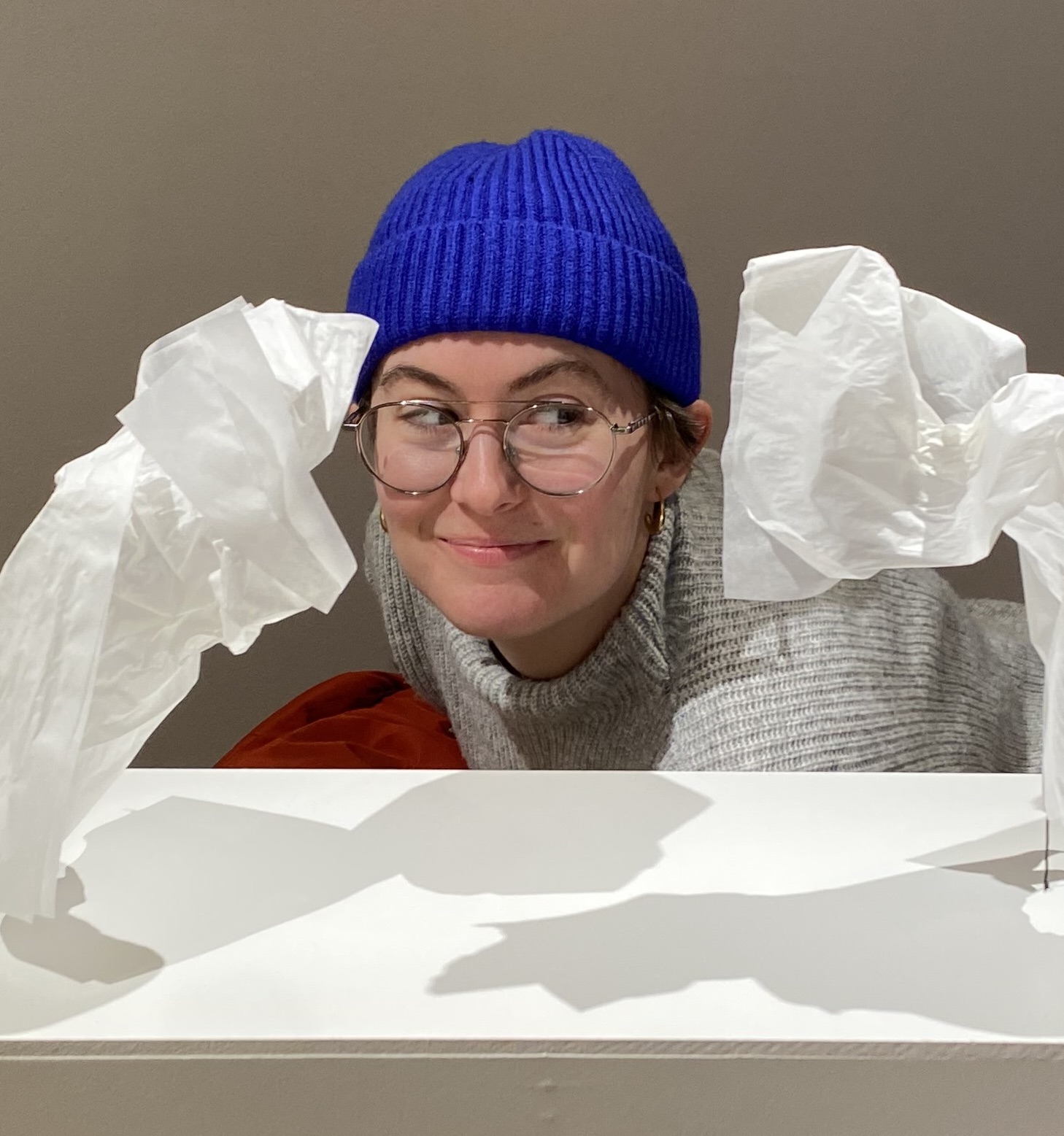
Bio: Kelly Cave is a working artist born and raised in New Jersey. She received her BFA from Syracuse University with a degree in Fiber and Material Studies and completed her MFA at the University of Cincinnati with a concentration in sculpture. Following graduate school, she served as Artist in Residence in sculpture at Northwest Missouri State University. Cave has attended residencies and created public artworks at Salem Art Works, Franconia Sculpture Park, the Scottish Sculpture Workshop, The Gilbertsville Expressive Movement, and the 2020 Nashua International Sculpture Symposium. In the spring of 2021 she completed a major public artwork in Glenside, PA as part of the Arcadia Public Art Project. Currently, Cave is a student, fellow, and instructor at Teachers College Columbia University in pursuit of a EdDCT degree in Art and Art Education. You can find her walking all around Manhattan with her dog, Ginny.
Title of Dissertation: Uncertain: Artist Collaboration in Liminal Space as Generative Action
Abstract: This study focuses on how artists perceive and utilize “uncertainty” in their work. Uncertainty can be understood as an insular, liminal, uneasy, and transitional experience. This research is fueled by the belief that it is within the liminal spaces of uncertainty where our most creative, innovative, and surprising moments occur. The study will employ an arts-based research methodology with a participatory lens; the researcher will conduct individual collaborations with five different artists in their studios. Resulting data will include creation of artworks, videos, recordings, writings, etc. The study will draw from the scholarship of Victor Turner, Dr. Semri Zeki, as well as creative collaborators like Fischli & Weiss. As artists, our studio practice influences and informs our perspectives and approaches to teaching and learning. This research will employ a deep investigation/inquiry into studio art and artists, with the hope of inspiring individuals to embrace the uncertainty in creative spaces.
Advisor: Dr. Richard Jochum, Associate Professor of Art and Art Education